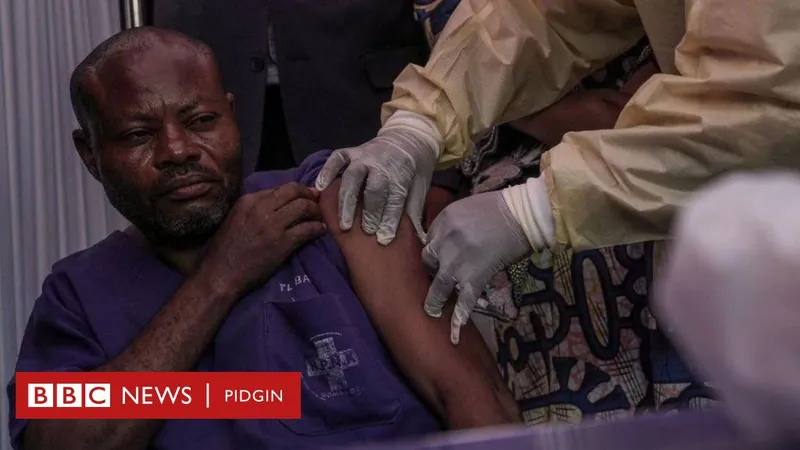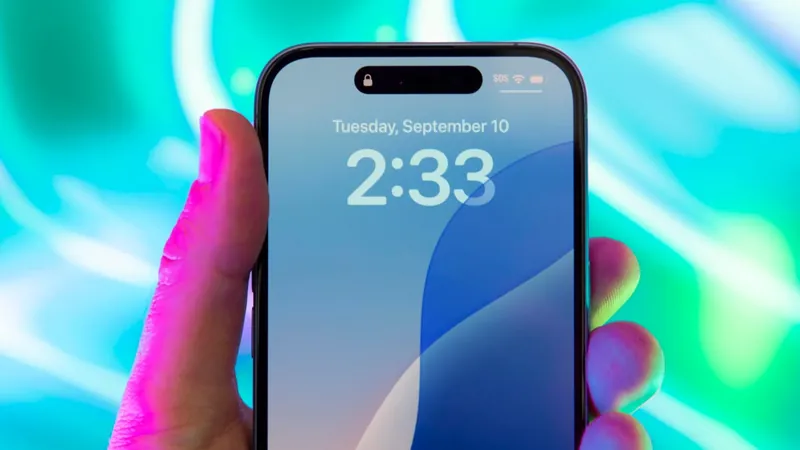
African Countries Begin Rollout of Mpox Vaccines: What You Need to Know
2024-10-12
Author: Michael
African Countries Begin Rollout of Mpox Vaccines: What You Need to Know
In a bold move to combat the alarming spread of Mpox, formerly known as monkeypox, several African nations are launching vaccination campaigns to protect their populations. This marks a significant milestone, as it is the first time these vaccines are being utilized in large-scale vaccination programs across the continent.
The World Health Organization (WHO) reports that since the beginning of 2023, Mpox cases have emerged in 16 African countries. Ghana recently confirmed its first case of Mpox last week, highlighting the urgent need for a coordinated response.
The Democratic Republic of Congo (DR Congo) is facing the brunt of this outbreak, with an estimated 22,000 infections and over 700 fatalities reported by the Africa Centres for Disease Control and Prevention (CDC). However, health experts speculate that the actual numbers could be much higher due to insufficient testing and ineffective contact tracing.
In DR Congo, vaccination efforts are set to begin in Goma, one of the most affected cities. Meanwhile, Nigeria has identified more than 70 Mpox cases but has delayed its vaccination rollout plans targeting high-risk groups in states such as Ogun, Akwa Ibom, Plateau, Cross River, and Abia.
Rwanda was the first African country to commence Mpox vaccinations last month, despite grappling with two outbreaks – Mpox and the deadly Marburg virus. The Rwandan health ministry has announced plans to initiate clinical trials for experimental Marburg vaccines and treatments shortly.
What Vaccines Are Available?
The WHO has recommended three vaccines for Mpox: MVA-BN (also known as Jynneos, produced by Danish Bavarian Nordic), LC-16 (produced by Japanese KM Biologics), and ACAM2000 (manufactured by US-based Sanofi Pasteur Biologics, LLC). The MVA-BN vaccine received WHO pre-qualification to ensure it meets global standards of safety and effectiveness. Vaccinated individuals can expect full protection approximately two weeks after receiving the vaccine.
Who Is Eligible for Vaccination?
The WHO does not advise that countries vaccinate their entire populations; instead, it strongly recommends targeting high-risk groups. These include healthcare workers, individuals who have been in close contact with infected persons (including children), and individuals with multiple sexual partners. The link between the 2022 global Mpox outbreak and sexual activity among men who have sex with men highlights the importance of reaching these communities effectively.
As for children, only the LC-16 vaccine is officially approved for use in individuals under 18. The MVA-BN vaccine may be used for this age group in special cases, while the ACAM2000 vaccine is not recommended for minors. The European Union has recently approved the MVA-BN for adolescents, further broadening access.
How Are Vaccines Administered?
The MVA-BN vaccine requires two injections spaced 28 days apart, administered in the upper arm. The other two vaccines are single-dose shots delivered using a specialized bifurcated needle, which creates a small lesion on the skin to allow vaccine absorption.
What Are the Side Effects?
As with most vaccines, some individuals may experience no side effects, while others might encounter mild pain, swelling, itching, fatigue, headaches, muscle pain, nausea, or mild fever following vaccination.
Can Vaccinated Individuals Contract Mpox?
Yes, it is still possible to contract Mpox even after vaccination; however, according to WHO and Africa CDC, the likelihood decreases. Vaccination significantly reduces the chances of infection and protects against severe illness if infected. Factors like individual health and age can influence the duration of vaccine efficacy.
Are Vaccines Effective Against the New Mpox Clade 1b Variant?
Ongoing research is evaluating the effectiveness of these vaccines against the Clade 1b variant of Mpox. The FDA-approved MVA-BN vaccine has been noted for its efficacy in responding to this variant, according to African health officials.
What to Do If You Exhibit Symptoms?
If you experience symptoms such as fever, headache, muscle aches, swollen lymph nodes, or rashes, it’s crucial to reach out to your local health provider for guidance. Early detection and treatment are vital in controlling the spread of Mpox.
Africa is at a critical juncture in its battle against Mpox, and the rollout of vaccines represents a hopeful step forward in protecting vulnerable communities.









 Brasil (PT)
Brasil (PT)
 Canada (EN)
Canada (EN)
 Chile (ES)
Chile (ES)
 España (ES)
España (ES)
 France (FR)
France (FR)
 Hong Kong (EN)
Hong Kong (EN)
 Italia (IT)
Italia (IT)
 日本 (JA)
日本 (JA)
 Magyarország (HU)
Magyarország (HU)
 Norge (NO)
Norge (NO)
 Polska (PL)
Polska (PL)
 Schweiz (DE)
Schweiz (DE)
 Singapore (EN)
Singapore (EN)
 Sverige (SV)
Sverige (SV)
 Suomi (FI)
Suomi (FI)
 Türkiye (TR)
Türkiye (TR)